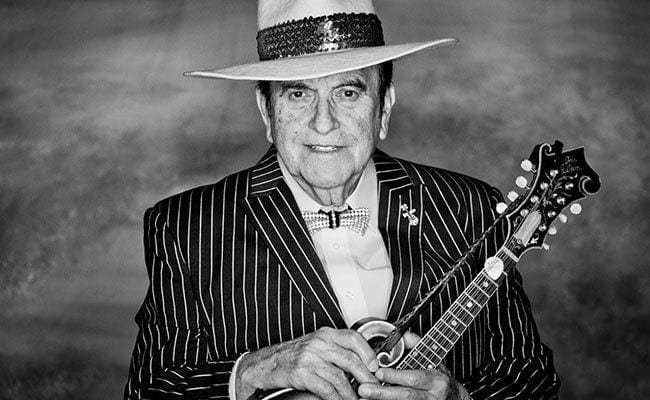
Given the level of reverence afforded the early practitioners and innovators of American roots music, it’s little surprise that when a country, bluegrass or folk giant decides to make an album a whole host of contemporary artists wind up clambering to be a part of the project. From Rick Rubin’s resuscitation of Johnny Cash’s career in his twilight years through Jack White’s more recent championing of Loretta Lynn, Wanda Jackson and others, subsequent generations of musicians of a particular ilk are always more than willing to pay their respects to those who came before, returning the favor and, in the process, bolstering the career and profile of an aging icon. In the last 15 years or so alone we’ve seen new albums by the likes of Mavis Staples, Solomon Burke, Porter Wagoner, Charlie Louvin, Vashti Bunyan, Bettye Lavette and countless others whose careers had long ago been abandoned only to see a bit of a resurgence in the hands of high-profile admirers.
Joining an increasingly prestigious list is 85-year-old bluegrass legend Bobby Osborne whose Original features a who’s who of some of the biggest names in Americana (Vince Gill, Jim Lauderdale, Del McCoury, to name just a few), nearly all of whom owe a debt of gratitude to Osborne for his contributions to the legacy and history of American roots music. And really, what better way to show one’s gratitude and appreciation than working with an icon like Osborne on a late-career release like this? Banjo virtuoso and progressive bluegrass legend-in-her-own-right Alison Brown not only lends her talents on the banjo but heads up the whole affair, acting as producer and arranger. And what great arrangements there are throughout.
At face value an odd choice, the Bee Gees’ maudlin “I’ve Gotta Get a Message to You” proves itself to be an ideal candidate for the bluegrass treatment, the song’s undercurrent of sadness and longing a note-perfect thematic fit for the genre’s penchant for tragic tales. Indeed, of the more well-known covers here (“Make the World Go Away” and “Don’t Be Cruel” being two such examples) “I’ve Gotta Get a Message to You” improves upon the original in an entirely unexpected manner. There is perhaps no further musical leap one could consider on a project like this than that of the Bee Gees’ late 1960s output and traditional bluegrass, yet the overarching thematic sameness of the two make them perfect foils (perhaps Barry Gibb will consider a cover of “Rocky Top” at some point?)
Possessing one of the purest distillations of the high and lonesome sound, Osborne’s voice here remains as full and vibrant as ever, sounding nothing like the 85-year-old he is. “Don’t Be Cruel” in particular finds Osborne in fine form, his sprightly vocal takes the work of someone half, if not a third, his age. You can almost hear the smile in his voice as he eases through Elvis’ 1956 hit, a song that would’ve hit the charts just as Osborne was beginning his own career with his brother Sonny as part of the Osborne Brothers.
Speaking of the Osborne Brothers, Del McCoury does a splendid job slotting in alongside the elder Osborne’s lead vocal on Mel Tillis’ “Goodbye Wheeling”. Together, their voices meld into one the way only the best of close-harmony singers can ever seem to manage. It’s a fine turn and one of the many highlights on the album, the majority of which center around the tight, traditional bluegrass harmonies. “Kentucky Morning” opens up on its chorus with a three-part harmony shared between Osborne, Dale Ann Bradley, and Darrell Scott, their voices a perfect blend that sends shivers down the spine of the listener.
Continuing the family tradition, Bobby Jr. takes the lead on the chorus of “Country Boy” while the elder Osborne lends an impeccable, angelic harmony that fits in a way only blood relations can seem to manage vocally. Similarly, closing track “Pathway of Teardrops” features both Bobbys as well as Wynn Osborne on banjo and Robby Osborne on drums.
Running a tight ten tracks, Original is yet another wonderful victory lap from a musical icon refusing to go quietly into his twilight years. There’s nothing here that will rewrite Osborne’s legacy, but that’s just as well as he seems content just to sit back and sing while others do the picking, paying their respects in the process. What more could an 85-year-old true original ask for?


![Call for Papers: All Things Reconsidered [MUSIC] May-August 2024](https://www.popmatters.com/wp-content/uploads/2024/04/all-things-reconsidered-call-music-may-2024-720x380.jpg)



